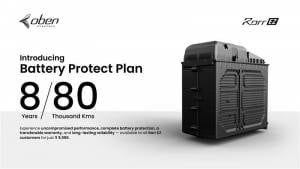Green Fuel Showdown: CNG vs. Electric - Myths, Facts, and the Future of Sustainable Transportation
The green fuel revolution began quite some time back before EVs came in to change the scene. Now there is a never-ending debate about which is better in terms of being environment-friendly, cost-effectiveness and overall user-friendliness, CNG or Electric. Let's bust a few myths and face a few facts which can help us in planning for the future better.
Price
First, the most important thing is cost. We all know EVs are more expensive than their CNG-driven counterparts but does that truly make CNG vehicles more cost-effective? The answer to the question is questionable. CNG vehicles require additional components which adds to their acquisition costs when compared to petrol-powered equivalents. Also adding to the rising cost of CNG it's easier to recover the additional cost of purchase on an EV than it is with a CNG vehicle.
Maintenance
CNG vehicles are not really easier to maintain than EVs the only reason being multiple moving parts. While CNG is a cleaner fuel causing less wear and tear of the engine, CNG cars come with high-pressure tanks that need routine inspections and replacement to avoid the risk of corrosion and damage. On the other hand, EVs do not require fuel top-ups and have considerably lower maintenance costs due to fewer moving parts. This makes it clear once again that the myths surrounding EVs are called myths for a reason, they are not true.
Filling-up
One of the most important issues with EVs. Charging. Yes, it takes a while for an EV to charge. However, 95% of EV owners charge their vehicles at home and if you own a CNG vehicle you have to wait in two queues, one for CNG and one for petrol. This along with the limited availability of CNG outlets makes it more cumbersome for the CNG owner.
These were just some of the basic myths busted. Now let's go head-on into the advantages of EVs
Performance
EVs are fast, the instant torque delivery makes them faster than their petrol-powered equivalents. However on the other hand CNG vehicles generally have lower power and torque output than their petrol counterparts.
Driveability
EVs are easy to drive as well. EVs available in the market are automatic so the entire possibility of the hassle of shifting gears doesn't exist. The battery of an EV is generally housed at the floorboard of the vehicle making the centre of gravity low and hence the vehicle becomes more agile with enhanced driving dynamics than its fossil fuel counterparts.
Emissions
The biggest plus of an EV is that there are zero emissions. CNG despite being lower in emission output than petrol-driven vehicles still puts out harmful emissions making it bad for the environment. Also, there are no emissions, and no moving parts hence no noise or vibration. Your journey in an EV is significantly more comfortable and quiet than in any other fuel form.
Storage
Storage is a huge issue for CNG vehicles as majority of times the CNG tank takes up the entire boot space however the battery of an EV being on the floorboard of the vehicle keeps the boot free and hence more storage.
Economy
Last but not the least. Fuel efficiency and range. A modern electric vehicle now offers 200 to 300 km of range on a full charge. However, a CNG vehicle can store up to about 8 to 10 Kg of CNG delivering around 30 km/Kg. The math is simple, there is no major difference the CNG vehicle provides the owner that the EV doesn't.
Network18 & OLA Electric presents Green Bharat - Road to Green














